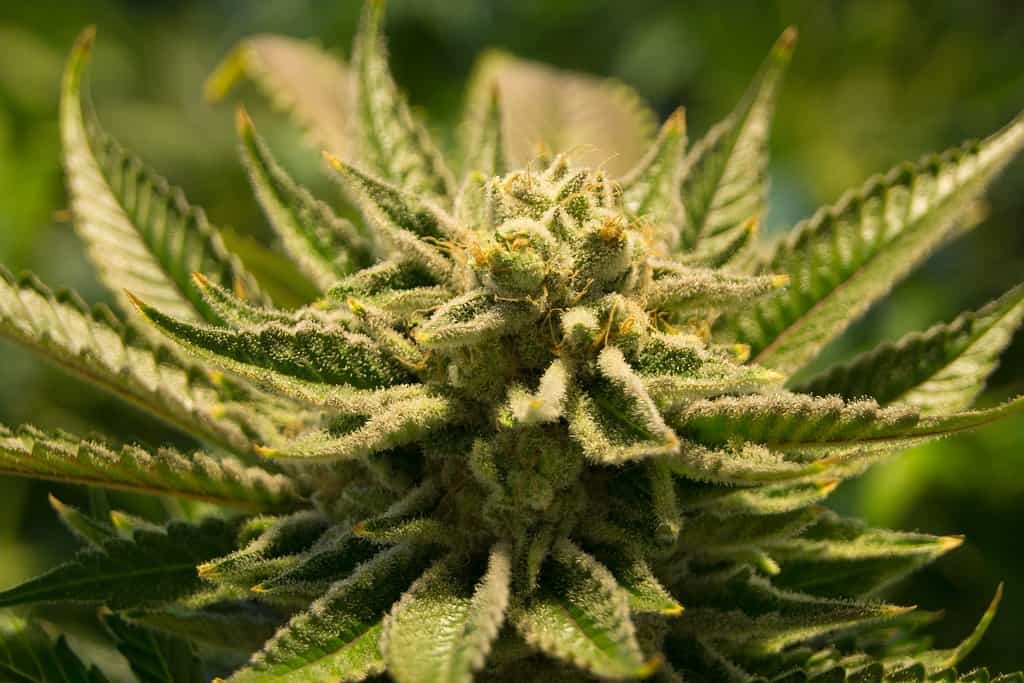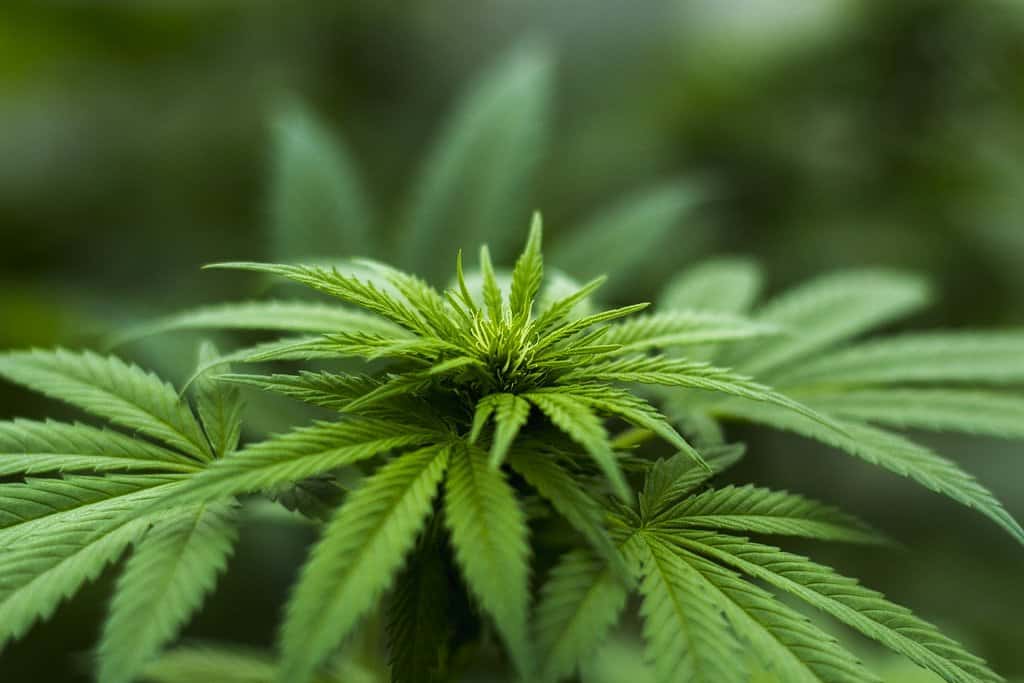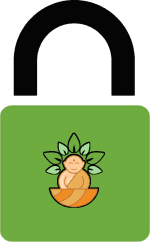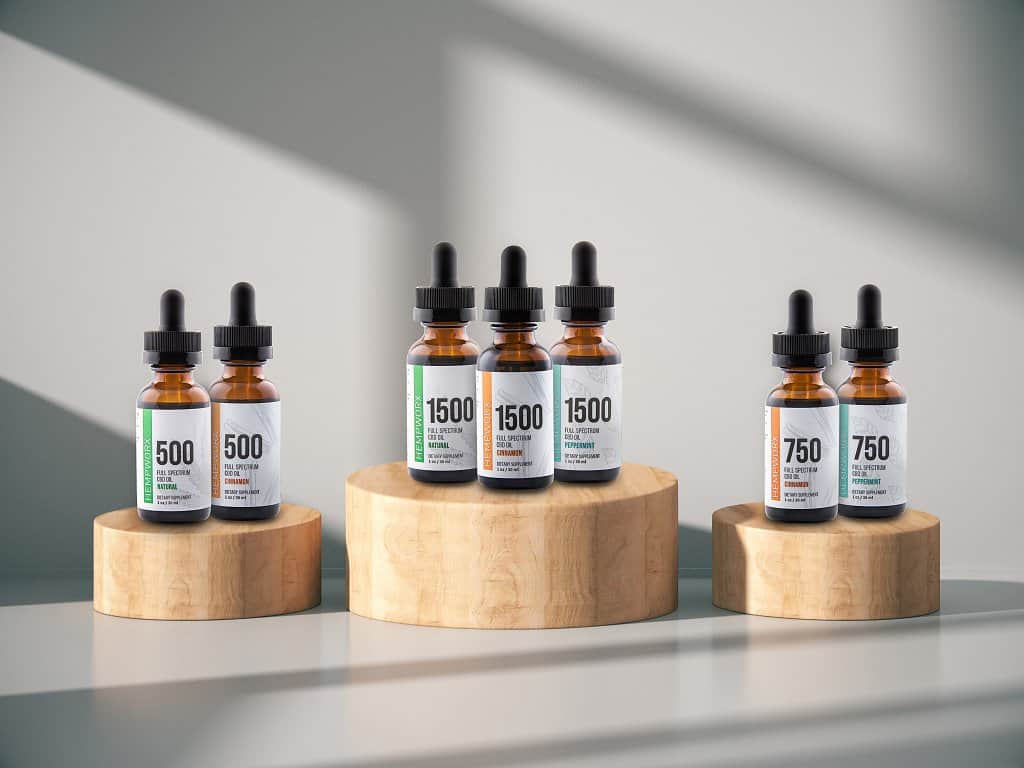What You Need To Know About CBD
What Is CBD?
According to Wikipedia, “cannabidiol is a phytocannabinoid discovered in 1940. It is one of 113 identified cannabinoids in cannabis plants and accounts for up to 40% of the plant’s extract.”
CBD has become one of the most popular forms of alternative medicine, and since its legalization in several states, it is readily available and highly sought after.
It is believed to have benefits for both physical and mental health.
Interestingly enough, there have been few human studies for CBD, and yet a Gallup Survey found that 1 in 7 adults use CBD Products
Many forms of therapy under the alternative medicine umbrella are this way, with science behind the numbers of frequency of use.
And this tells us there is something to CBD that millions of people find beneficial.
Before considering CBD, you will want to know what it is, the possible benefits, what it is made from, and how to buy it.
Of course, you should speak with your doctor before trying CBD or any other types of alternative therapies to be sure it is safe for you to use.
The most crucial first step you can take is openly communicating with a doctor and be sure that CBD will not interfere with any medications you may be on.
CBD is a strain in the hemp plant that holds beneficial properties that people use all over the world.
- CBD stands for cannabidiol, which is the strain known for its medicinal properties.
- It has boomed in the health world, and many people are now adopting it in their daily health care routine.
- CBD is specifically taken from the hemp plant and not the marijuana plant.
- Using hemp for products became legal in 2018 and has created a booming industry. The hemp plant contains very little THC (tetrahydrocannabinol), the psychoactive compound in the marijuana plant that causes intoxication. Legally speaking, CBD must contain less than 0.3% of this strain to be sold on the market.
- CBD is incredibly new to the retail world but has been growing rapidly. You can now walk down the street of many American cities and find CBD shops, and other stores that sell CBD products. It’s also available online, which is where I buy mine.
- Some states still do not socially accept CBD and will not allow hemp to be grown or sold there. Depending on the state you live in, you may not have the option to try CBD.
How CBD Differs From Marijuana
According to Harvard Health, “CBD stands for cannabidiol. It is the second most prevalent of the active ingredients of cannabis (marijuana). While CBD is an essential component of medical marijuana, it is derived directly from the hemp plant, which is a cousin of the marijuana plant. While CBD is a component of marijuana (one of hundreds), by itself it does not cause a “high.” According to a report from the World Health Organization, “In humans, CBD exhibits no effects indicative of any abuse or dependence potential…. To date, there is no evidence of public health related problems associated with the use of pure CBD.”
Many people use the word hemp and marijuana interchangeably, but they:
- are two entirely different plants
- contain different components
- have two separate anatomies and are used for different things
- they even look different!
Marijuana and cannabis oils do something much different than hemp and CBD oils.
The Marijuana Plant

- Unlike the hemp plant, this is a smaller plant that blooms.
- It is short and stocky, produces flowers, and has a very pungent smell.
- Every cannabis plant will have a stem and leaves that extend from nodes.
- Each plant will also have a cola or a cluster of buds at the very top of the plant.
- A male cannabis plant will have a pistil which is contained by the stigma that bees can collect from to pollinate the female flowers.
- The female cannabis flower will have the bract, which is where the bees pollinate.
- All cannabis plants will have something called trichomes, which are small odd shaped hairs to protect the plant. This is also the part of the plant that lets off the distinct “weed-like” smell you associate with cannabis.
- The trichome is also responsible for many other terpenes, which are glands that produce the cannabinoids. These secreted glands also hold the THC and CBD in the marijuana plant. Each strain of cannabis plant will hold a different number of terpenes.
The Hemp Plant

- Unlike its stocky, short cousin, this plant is tall and lanky.
- It is completely durable and could be one of the oldest plants that we know of.
- Hemp is part of the cannabis family, but it does not get you intoxicated. It contains an entirely different chemical composition, which is also why it is federally legal to grow.
- The coolest thing about hemp plants is that they start out as seeds, which are also technically nuts that you can consume. The hemp seeds have nutritional value, and can be added to salads, smoothies and eaten on their own to boost health. Milk and other food products are made from hemp, as well as industrial materials such as rope and clothing. Hemp plants naturally contain as little as 0.3% THC, so when consumed, you do not get a high.
- The anatomy of the hemp plant is almost the same as that of a marijuana plant. The difference is the stalk or stem of the hemp plant is thick and rough, almost like that of bark on a tree.
- Before flowering, you will never know which plant is female or male.
- In industrial hemp used to create CBD, most plants are either all female or all male. However, when someone is growing hemp on their own, one plant could carry 50% female heads and 50% male heads. This creates a unique looking hemp plant.
The Differences Between Cannabis And CBD
Now that you know the difference between each actual plant, you may be wondering the difference between CBD oils and cannabis oils.
- Both oils can be used for medicinal purposes. However, cannabis oil will intoxicate someone due to its high THC levels, while CBD contains hardly any THC.
- Cannabis oil comes from the marijuana plant and contains high levels of THC.
- CBD oil can only contain 0.3% THC, and most times, it can be nearly completely strained out, meaning it will in no way impair you.
- For both of these oils, you should consult a doctor before using them. Both CBD and cannabis oil should be used properly and safely.
How CBD Works
If you haven’t figured out by now, CBD is an amazing product that you may want to try to invest in – it could change your entire self-care routine.
There are now so many products to choose from and you have the tools to pick the best kind of product for yourself. Knowledge is power, and by reading this guide to CBD, you are accessing that power to live a healthier life.
So how does CBD work inside of our bodies?
Anything we ingest releases a chemical response, even when we eat foods.
Certain foods make us feel euphoric because of certain ingredients, while others can make us feel angry.
Either way, our body releases responses that roam throughout our whole body – and the same goes for ingesting CBD.
First, you need to understand that our bodies consist of an endocannabinoid system.
These receptors work with CBD to produce a range of effects.
There are two types of receptors called CB1 and CB2, and this system functions with or without CBD to push it along:
- CB1 receptors influence and help control our coordination, movements, pain responses, memory, appetite, and mood.
- CB2 receptors are in charge of inflammation, our nervous system, and pain.
Enzymes work in our body to break down the cannabinoids that enter our system.
Then, the endocannabinoids search for receptors.
CBD does not directly bind with receptors but influences them to do certain things and adds a layer of protection.
It helps activate certain receptors more than the body naturally can, which then leads to all of CBD’s health benefits.
CBD For Health: What The Science Shows
Now that we know how CBD works in our bodies, you may be wondering what the actual health benefits are.
There have been a few studies done on CBD, but more human research studies are needed for any conclusive results.
If you are looking to manage something specific, your best bet is asking your doctor for their opinion and if it will interact badly with any other medications you may be taking.
CBD has been shown to be possibly beneficial for various conditions, and while thousands of people love and use it, conclusive science is still out.
THC (medicinal marijuana) also has its own benefits, but unlike CBD, THC does cause intoxication.
This does not mean you should go out and smoke a joint, but it does mean you need to look at the whole plant and learn about the benefits of both CBD and THC.
Migraines
CBD has been known to reduce migraines or chronic headaches in individuals. There is still little scientific evidence it works for migraines, but some users have declared that it does reduce the symptoms of bad migraines.
If you’re looking for other natural treatments, managing stress levels is a really good way to manage migraines, and you can do this through meditation and exercise.
Dravet Syndrome And Lennox-Gastaut Syndrome
One of the more prominent and proven uses of CBD is for seizures.
According to Harvard Health Publishing, the strongest scientific support for CBD is in the treatment of one of the most awful childhood epilepsy syndromes, Dravet syndrome and Lennox-Gastaut syndrome.
One of the worst aspects of these conditions is they do not respond to antiseizure medications.
But, multiple studies have shown that CBD is able to not only reduce seizures but even eliminate them completely.
This is the reason that the FDA has approved the first cannabis-based medication, known as Epidiolex, which contains CBD and treats these conditions.
Anxiety and Insomnia
Harvard Health further states that CBD seems to be effective in alleviating anxiety and insomnia, as research has found CBD to not only be helpful in falling asleep but also in staying asleep.
Many people worry about prescription anxiety medication which can cause dependence and other unwanted side effects. CBD seems to help many with anxiety, and it is not psychoactive (mood altering) or addictive.
Healthline cites a Brazilian study that included 57 male subjects who were given either oral CBD or a placebo about an hour and a half before giving a public speaking test.
The results were fascinating in that those who received a 300 mg dose of CBD had a significant reduction in anxiety (symptoms including shaking, increased heart rate, trouble focusing, and irritability) while performing the public speaking test.
Depression
Healthline reports that CBD oil has shown a lot of promise in treating depression, “using CBD has been shown to reduce anxiety and depression in both human and animal studies.”
Cancer And Its Symptoms
It is possible that CBD may help reduce symptoms related to the treatment of cancer, such as nausea, pain, and vomiting.
One study that included 177 patients (Multicenter, double-blind, randomized, placebo-controlled, parallel-group study of the efficacy, safety, and tolerability of THC:CBD extract and THC extract in patients with intractable cancer-related pain; Johnson, et al) found a combination of CBD and THC yielded significant pain relief when administered in unison versus giving the study subjects THC alone.
Another study (Delayed nausea and vomiting continue to reduce patients’ quality of life after highly and moderately emetogenic chemotherapy despite antiemetic treatment; Bloechl-Daum, et al) found CBD to reduce chemotherapy-related vomiting and nausea, two of the worst side-effects of cancer treatment.
Another exciting discovery occurred with animal studies (Preliminary efficacy and safety of an oromucosal standardized cannabis extract in chemotherapy-induced nausea and vomiting; Duran, et al) that found CBD to possibly have anticancer properties. The test-tube study discovered that concentrated CBD caused cell death in human breast cancer cells.
Another study found CBD to inhibit the spread of aggressive breast cancer cells in mice, The study states, “In conclusion, CBD represents the first nontoxic exogenous agent that can significantly decrease Id-1 expression in metastatic breast cancer cells leading to the down-regulation of tumor aggressiveness.” (Cannabidiol as a novel inhibitor of Id-1 gene expression in aggressive breast cancer cells; McAllister, et al).
Note though that the above is not making any medical claims that CBD can cure cancer!
Acne Relief
Test tube studies are promising in CBD being effective against acne, mainly because CBD contains anti-inflammatory properties and also is able to reduce sebum production (Cannabidiol exerts sebostatic and anti-inflammatory effects on human sebocytes; Balázs, et al) (Differential effectiveness of selected non-psychotropic phytocannabinoids on human sebocyte functions implicates their introduction in dry/seborrhoeic skin and acne treatment; Oláh, et al).
Neuroprotective Properties – Brain Health
Researchers believe that CBD may have the ability to benefit patients with neurological disorders, especially those suffering from multiple sclerosis and epilepsy. More research is needed but scientists believe the initial results are promising.
A spray that combines THC and CBD called Sativex was found to reduce muscle spasms in those suffering from multiple sclerosis (Nabiximols (THC/CBD oromucosal spray, Sativex®) in clinical practice–results of a multicenter, non-interventional study (MOVE 2) in patients with multiple sclerosis spasticity; Flachenecker, et al)
Other studies report improvements in sleep quality in those suffering from Parkinson’s disease (Cannabidiol can improve complex sleep-related behaviors associated with rapid eye movement sleep behavior disorder in Parkinson’s disease patients: a case series; Chagas, et al) (Effects of cannabidiol in the treatment of patients with Parkinson’s disease: an exploratory double-blind trial; Chagas, et al).
An exciting long-term study administered CBD to mice with genetic predispositions to Alzheimer’s disease and reported that CBD indeed helped to prevent cognitive decline in these mice (Long-term cannabidiol treatment prevents the development of social recognition memory deficits in Alzheimer’s disease transgenic mice; Cheng, et al).
CBD oil from hemp was found to help the following conditions in a study published in Pharmaceuticals:
- Less severe anxiety and agitation in patients with Alzheimer’s Disease
- Reduced brain inflammation in those with Alzheimer’s Disease
- Lower risk of involuntary movements (dyskinesia) in patients with Parkinson’s Disease
- Reduced impulsiveness and hyperactivity in people with Huntington’s Disease
It’s important to note that this research is still within its preliminary stages and future research must be done on humans to truly understand the full effects.
High Blood Pressure
The Mayo Clinic describes numerous studies that have found CBD to possibly help lower blood pressure, but more research is needed to confirm these results.
Pain Relief
Due to CBD’s anti-inflammatory properties, CBD may be an effective pain reliever.
The CBD strain sends chemical signals throughout your body that tell the pain receptors to stop hurting.
This is one of the biggest reasons why CBD is so popular – it is a natural way to defeat inflammation and pain under the umbrella of alternative medicine.
Studies have found CBD to be useful for chronic pain and reducing inflammation
Harvard Health describes a study that was published in the European Journal of Pain that reported reduced pain and inflammation from arthritis in animals.
They further cite another study that demonstrated just how CBD inhibited both neuropathic and inflammatory pain, both of which are chronic and some of the most difficult to treat and alleviate.
Other Health Benefits
CBD studies continue to be conducted and while more research is needed, a few possible promising benefits have arisen as a result.
Healthline reports these to be:
- The reduction of psychotic symptoms related to schizophrenia and other mental disorders.
- Substance abuse treatment.
- Animal and test-tube studies show promise in CBD having anti-tumor effects.
- Diabetic mice who were given CBD as a treatment yielded a 56% reduction in diabetes as well as greatly reduced inflammation.
THC Medicinal Benefits
There are actual health benefits of consuming THC, and a lot of the CBD you buy will contain 0.3% THC.
Note that this is not enough to intoxicate you – but it can be enough to receive the benefits THC offers.
Some researchers believe that you need both CBD and THC to receive any benefits from the solution.
Once you learn about CBD, you will notice many brands contain small THC traces, which is one of the 200 chemical compounds found in the cannabis plant.
Many researchers believe that you need both components to yield the best effects and receive the full health benefits.
What Makes THC Beneficial
- Buzz – The CB1 receptors bind to the CB2 receptors and release a chemical reaction in the brain that causes a buzz. In other words, this is the component that intoxicates you and what legal marijuana is known for. However, this may not be the strongest selling point for legal marijuana.
- Body – Most of what you feel after consuming THC is because of the chemical changes in your brain. It is known to work with the other components to create a super-strong anti-inflammatory potion, making it great for pain management.
- Hunger – THC is used by AIDS and cancer patients to reduce nausea and boost appetite that is often affected by the diseases and chemotherapy treatment. THC stimulates the release of ghrelin, the hunger hormone.
- Sleep – If you are struggling with sleeping disorders, using CBD with THC can really help this problem. Prescription sleeping pills can help with insomnia for a short amount of time, but after a while, your body becomes used to it, and they are highly addictive and so can be dangerous for long term use, but while THC can cause people to abuse it, physical dependence is not an effect of THC.
Properties Of CBD
Though not enough research has been done to prove that CBD helps all of these things, researchers believe that the properties of CBD can help a lot of different types of people.
CBD properties can include:

Sorry - The Rest Of This Article Is Only For Self Help Nirvana Members
JOIN NOW FOR ONLY $7Self Help Nirvana is an online community for everybody whose goal is personal improvement and development. Become a Self Help Nirvana member today and get access to everything here at SelfHelpNirvana.com!
Already a member? Sign in.







